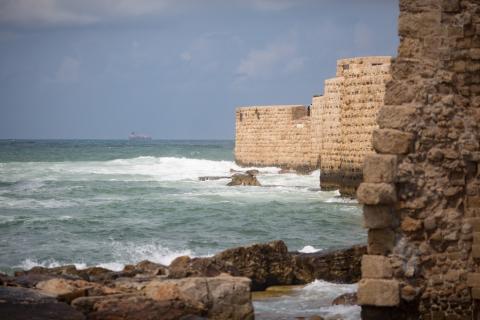Before leaving London, the Master officiated a wedding of a young Persian couple. The full account can be read at http://reference.bahai.org/en/t/ab/ABL/abl-38.html , but the sweetness of the event struck me in the description of ‘Abdu’l-Bahá asking the bride and groom, in turn, if they loved each other with their all their heart and soul. That modest question and the meal that followed were simple embellishments to what is required of a Bahá’í wedding ceremony namely the recitation of the wedding vow, “we will all verily abide by the will of God”, in the presence of two witnesses.
The wedding performed by the Master calls to mind other historical examples of Bahá’í weddings such as His own, in the House of ‘Abbúd. The wife of ‘Abdu’l-Bahá, Muniríh Kh?ánum, described the occasion in these words: “How blessed and exalted was that time! How joyous that hours in that room!” (Munirih Khánum, p. 51)
“At the wedding there was no cake, only cups of tea; there were no decorations, and no choir, but the blessing of Jamál-i-Mubarak; the glory and beauty of love and happiness were beyond and above all luxury and ceremony and circumstance.” (The Chosen Highway, p. 46)
The spiritual nature of marriage which is mirrored in the simple dignity of these ceremonies was articulated by the Master at the London wedding. He said: ”Marriage is a holy institution and much encouraged in this blessed cause. Now you two are no longer two, but one. Bahá’u’lláh’s wish is that all men be of one mine and consider themselves of one great household, that the mind of mankind be not divided against itself. It is my wish and hope that you may be blessed in your life. May God help you to render great service to the kingdom of Abhá and may you become a means of its advancement. May joy be increased to you as the years go by, and may you become thriving trees bearing delicious and fragrant fruits which are the blessings in the path of service.”
My overactive imagination runs wild with this simple account and I relish the layers of unity involved: a bride who had journeyed from Baghdad meeting her Persian husband in London, the resulting union of their two families, and the mingling of eastern and western believers in celebrating a simple wedding in the presence of the Master. In this wedding I see the unity of the world.
